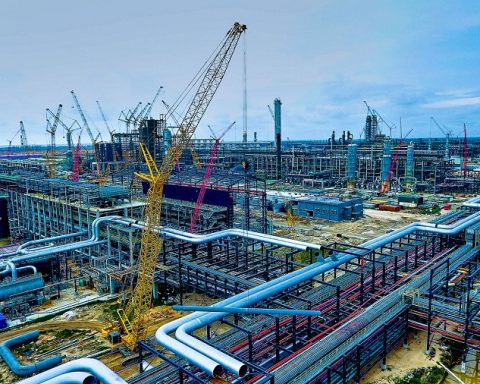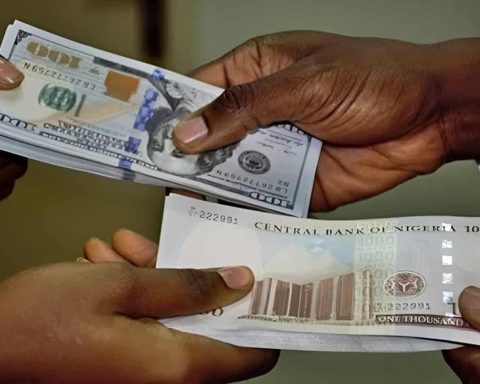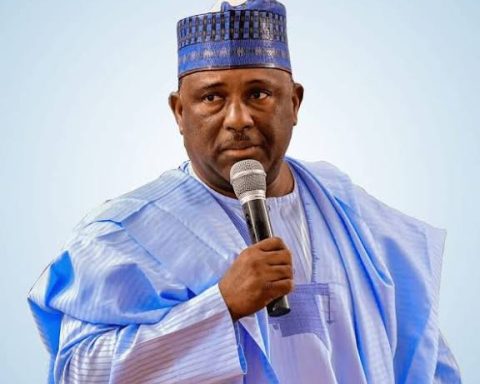In its quest to tackle oil theft and other illicit activities in crude oil movements and exports, the Nigerian Upstream Petroleum Regulatory Commission (NUPRC) has introduced new guidelines to enhance the monitoring of crude oil exports in the country.
The move aims to improve transparency, curb theft, and ensure accurate measurement of crude oil shipments from the country.
Join our WhatsApp ChannelThe new guideline, which was issued under the Nigerian Upstream Petroleum Advance Cargo Declaration Regulation 2024, requires that all pre-shipment documentation must be processed through the Commission’s online platforms.
A statement issued by the public relations unit of the commission on Wednesday said the guideline is backed by Section 10(f) of the Petroleum Industry Act 2021, which offers a thorough process for acquiring export permits, vessel clearance, and a mandatory Unique Identification Number (UIN) for all exports of petroleum products, natural gas liquids, condensate, and crude oil from Nigerian terminals and export points.
Exporters of petroleum products and crude oil are required by the new directive to submit all export documentation within 24 hours of the cargo shipment.
All licenses and leases granted or preserved under the Petroleum Industry Act (PIA) 2021 are covered by the revised framework, which was approved by the Commission’s Chief Executive Engr. Gbenga Komolafe on Tuesday.
It mandates crude oil and petroleum product exporters to submit all export documentation within 24 hours of cargo shipment.
READ ALSO: CBN Urges Fiscal Authority To Boost Efforts In Forex Earnings From Exports
“The Nigerian Upstream Petroleum Advance Cargo Declaration Regulation, 2024, are designed to establish a robust framework for declaring and tracking crude oil and petroleum product exports from Nigeria, monitoring and accounting for the movement of crude oil within the country, preventing disruptions, theft and under-declaration at export terminals and ensuring that only certified and measured products are exported, supporting accurate revenue generation for the government,” part of the statement read.
The Commission emphasised that the regulation is designed to enhance transparency, accountability, and efficiency in Nigeria’s crude oil and petroleum product exports.
While noting that the revised regulation ensures that only certified and accurately measured volumes are exported, the upstream regulator explained that it mandates exporters to obtain an export permit, vessel clearance, and a Unique Identification Number through the NUPRC’s online platforms before any shipment.
“The commission will validate the identity of exporters and verify export volumes before issuing clearance notifications, which will be embedded with a UIN for tracking. All relevant export documents, including the Bill of Lading, Certificate of Origin, and cargo manifest, must reference the UIN, ensuring traceability and compliance,” the statement added.
The statement highlighted that the NUPRC’s Advance Cargo Declaration Portal “is a real-time, technology-driven system that integrates seamlessly with other government export systems, allowing for real-time tracking and reconciliation of crude oil exports, immediate upload of export documentation within 24 hours of cargo loading, and enhanced data integrity and transparency across the export chain.”
The guidelines give the Commission the authority to deny vessel clearance for incomplete or false documentation. Offenders may face administrative fines and other sanctions.
READ ALSO: Rise In Crude Oil Exports Will Strengthen The Naira, Says CBN
Komolafe emphasised that the initiative is in line with the Commission’s broader mandate to modernise the upstream oil sector, reduce waste, increase government revenue, and enforce regulatory compliance in accordance with the Petroleum Industry Act.
Despite the Domestic Crude Supply Obligation, which stipulates prioritization of supply of crude oil to local refiners, domestic producers as Dangote Refinery, have continued to rely heavily on crude oil imports, due to their inability to source the commodity locally.
Nigeria imported N1.19 trillion worth of crude oil in the first quarter of 2025, according to the latest trade data released by the National Bureau of Statistics (NBS). This was attributed to an insufficient domestic supply of crude oil to local refineries.
The NBS report also revealed that the first quarter of 2025 saw Nigeria export N12.96 trillion worth of crude oil and oil petroleum products, which accounted for 62.89 percent of the nation’s total exports during the period.
Key Aspects of the New Guidelines:
Digital Crude Oil Tracking System: The NUPRC will implement an automated system to monitor crude oil exports in real-time, reducing discrepancies and leakages.
Strict Vessel Documentation: Exporting vessels must provide detailed documentation to verify volumes, including pre-loading and post-loading assessments.
Vessel Audits: Independent inspectors will validate crude oil measurements before shipments leave Nigerian terminals.
Enhanced Reporting Requirements: Oil companies must submit regular and accurate reports on export volumes, destinations, and sales to the NUPRC.
Anti-theft Measures: The guidelines include tighter surveillance on pipelines and export terminals to combat crude oil theft, which has cost Nigeria billions of dollars annually.
Why The New Guidelines Matter:
Nigeria loses an estimated 200,000–400,000 barrels per day (bpd) to theft and pipeline vandalism.
The new rules align with the Petroleum Industry Act (PIA) 2021, which mandates robust regulatory oversight.
Improved monitoring could boost government revenue and restore investor confidence in Nigeria’s oil sector.
Oil companies are expected to comply, though some may face initial logistical challenges.
Analysts see this as a positive step but stress the need for consistent enforcement.
The NUPRC’s move signals Nigeria’s commitment to tackling oil sector inefficiencies and improving accountability in crude oil exports.











